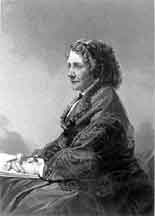1952 Uncle Tom's Cabin

"Uncle Tom's Cabin," written by Harriet Beecher Stowe in 1852, made a significant historical impact, drawing attention to the struggles of a slave family. This powerful novel fueled anti-slavery sentiments in the North and affected international attitudes. Its wide reach, including massive sales and popularity in Europe, influenced sociopolitical dynamics pre-Civil War. An iconic interaction with President Lincoln highlighted the book's influence, dubbing Stowe the woman whose book ignited the war..
In 1852, a groundbreaking novel titled "Uncle Tom's Cabin" was published, swiftly emerging as one of the most historically impactful pieces of literature in American society. The novel, penned by the prolific author and mother of six, Harriet Beecher Stowe, painted a vivid and heartrending picture of a slave family's experiences.
"Uncle Tom's Cabin" was a sensation almost instantly, with hundreds of thousands of copies printed within the first year alone. Its popularity surged to such an extent that ultimately, millions of copies were sold, reaching an audience that spanned across the globe. The book's deeply emotive narrative served as a potent catalyst in consolidating opposition to slavery in the North, making it a literary linchpin in the sociopolitical discourse of the time.
Yet the novel's influence was not confined to American borders; its success extended across the Atlantic, notably in France and England. The book made such a profound impact that it created a fissure in the previously consistent support shown by the aristocracy in these countries towards the South. Thus, "Uncle Tom's Cabin" also played a key role in shaping international sentiments during the era.
A testament to the novel's momentous impact can be encapsulated in a widely reported interaction between Mrs. Stowe and President Lincoln in 1862. Upon meeting the acclaimed author, Lincoln is reputed to have said: "So you're the little woman who wrote the book that made this great war."
In this statement, whether apocryphal or true, the enormity of the novel's influence is laid bare. For it is suggested that "Uncle Tom's Cabin," with its powerful depiction of the hardships endured by a slave family, served as a catalyst for the Civil War, one of the most significant conflicts in American history. In this light, it can be seen that Harriet Beecher Stowe's contribution to literature was not merely a contribution to the arts, but an act that resonated profoundly within the annals of American history.
The tale of "Uncle Tom's Cabin," therefore, is one that transcends the traditional realms of literature. It stands as a testament to the power of the written word, its ability to inspire change, and its potential to frame the narrative of a nation. The novel is a testament to the unique interplay between literature and society, how a single story can dramatically shift public opinion, and how a single book can leave an indelible mark on the course of history.
 >
>